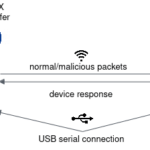BSc/MSc/PhD Supervision Topics
DEFSYS (Design Theory Framework for the Science of Security) Topics
- Applied (discrete) mathematics for disaster research:
- Structural modelling of critical disaster aspects
- Discrete mathematical assessment of disaster domains
- Data analysis and information extraction for mathematical modelling
- Scenario generation/development
- Simulation and experiments
- Example topic: Cyber crisis modelling from a combinatorial perspective
- Applied (discrete) mathematics for research in finance:
- Structural modelling of financial instruments and processes
- Data analysis and information extraction for mathematical modelling
- Scenario generation/development
- Simulation and experiments
- Example topic: Discrete mathematics for financial instrument performance
- Applied (discrete) mathematics for information security:
- Structural modelling of vulnerabilities, attacks and information security protocols
- Mathematical assessment of privacy aspects of modern society
- Data analysis and information extraction for mathematical modelling
- Example topic: Combinatorial assessment of crypto software
CALGO (Covering Arrays, Algorithms and Optimization) Topics
- Algorithms for Combinatorial Array Generation:
- Neural Networks for generating Covering Arrays and related structures
- Formal Methods (SAT, CSP, ASP, …) for generating combinatorial fault locating arrays (related work existing)
- Formal Methods for post-optimization of CAs
- Quantum (inspired) Algorithms for CA generation
- Nature inspired algorithms for CA generation
- Algebraic models for CAs
- Algorithms for Combinatorial Sequence Generation:
- Automata (Theory) for Combinatorial Sequences
- Optimization Algorithms for Combinatorial Sequences
- Tool development integrating existing algorithms:
- Develop a new web application tool realising an existing algorithm
- Benchmarking of existing tools
- Theoretical Computer Science and Covering Arrays:
- Computational Complexity of optimal Covering Array generation
- Analytic Combinatorics for Covering Array generation
- XAI for CT: Combinatorial Fault Localization/Pattern Recognition:
- ML and AI for identifying failure inducing interactions in combinatorial test sets
- Compare to: ML and AI for identifying failure inducing interactions in random test sets
- Connections between combinatorial testing and debugging:
- From failure inducing t-way interactions to program slices or bugs
- CT for XAI (Combinatorial Testing methods for Explainable AI):
- Solving Bongard problems
- Case study: feature detection in pictures of Bongard problems; two classes are given; we look for a unique t-way interaction of one of the classes
- Empirical studies on the applicability of Combinatorial Testing methods for XAI
- T-way interactions as explanations of machine generated output
- T-way interactions as explanations for human users
- Combinatorial Test Generation for Hardware Testing:
- Combinatorial Testing applied for Hardware Trojan Testing
CST (Combinatorial Security Testing) Topics
- Learning-based enhancements to combinatorial security testing:
- Automated oracles for security testing (also offered as PhD topic)
- Security testing of protocols and web applications:
- Quantum software faults and vulnerabilities
- Security analysis/review of DBMS connectors
- Testing of RF communications protocols
- Combinatorial security testing for DOM XSS
- Development workflow integration:
- Embedding combinatorial testing into development lifecycles (focus on CI/CD)
- Embedding combinatorial test generation into fuzzing workflows
- Case studies for state-of-the-art techniques:
- Combinatorial (security) testing of web applications
- Emerging topics:
- Combinatorial testing of mobile applications (also offered as PhD topic)
- Security testing of quantum computing applications (also offered as PhD topic)
- Combinatorial Testing of Tor Network
- Combinatorial Security Testing for PGP
- Testing of PQC Implementations submitted to NIST Competition




